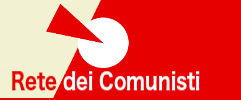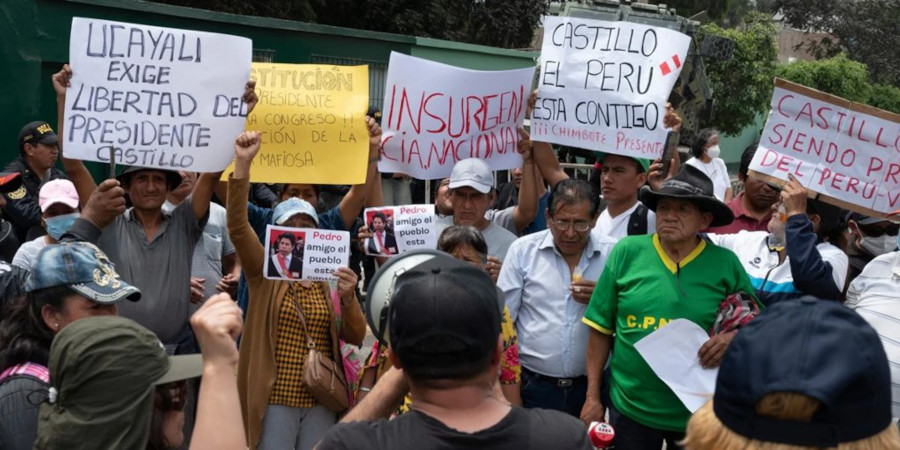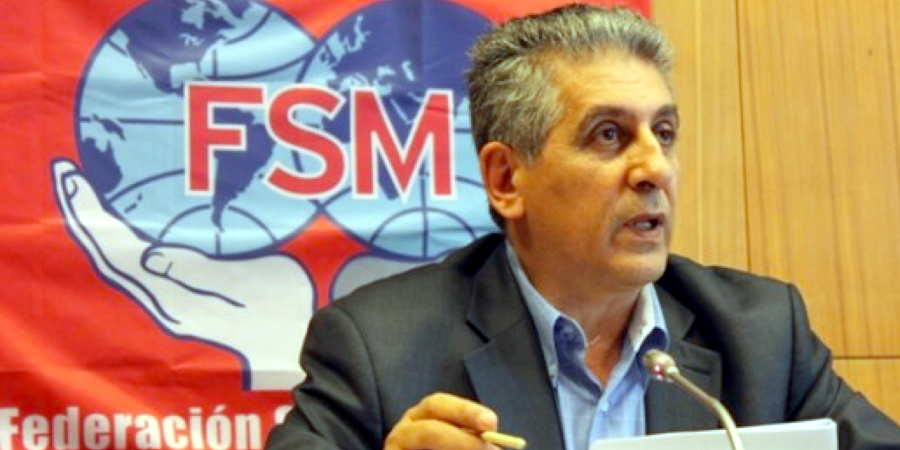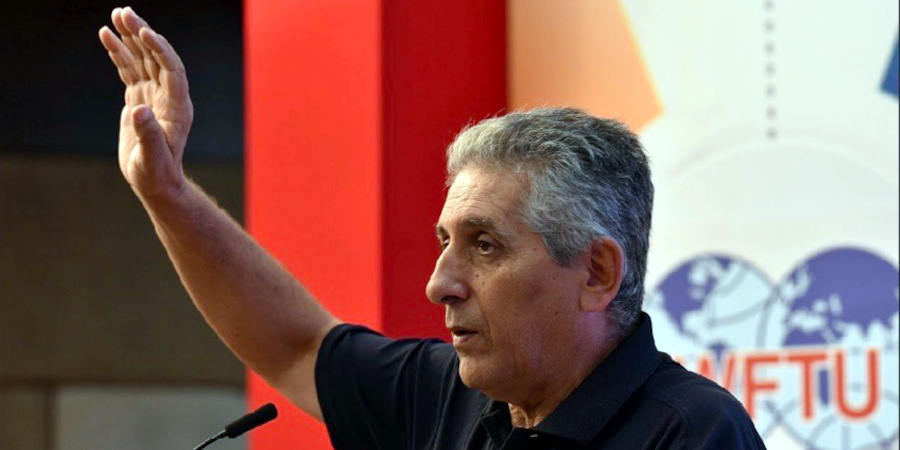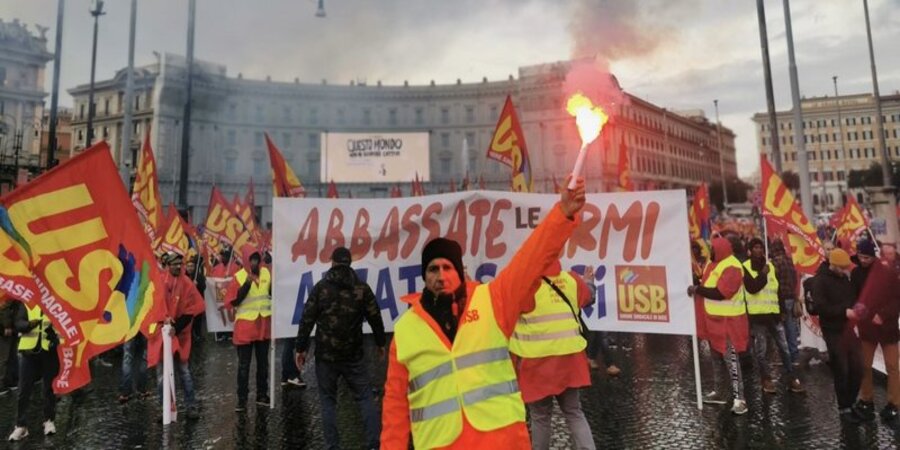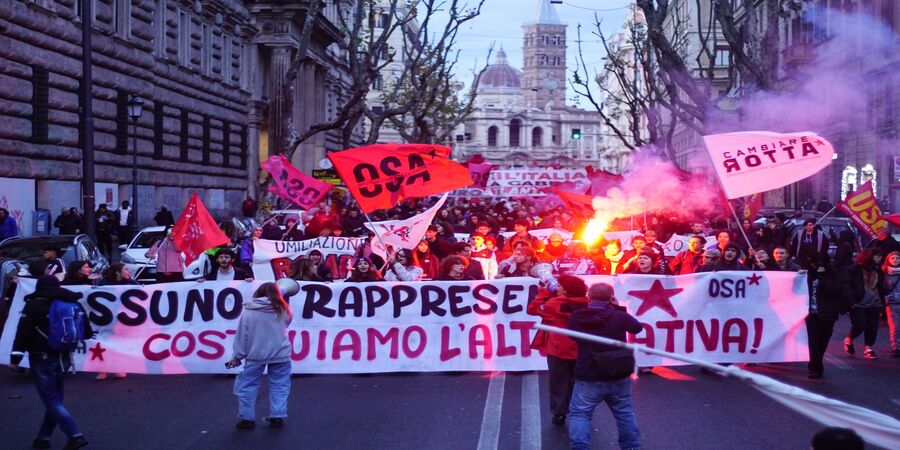| english | español | français | italiano |
Rete dei Comunisti, Cambiare Rotta – organizzazione giovanile comunista, Opposizione Studentesca d’Alternativa (OSA)
The mobilisations in Peru, following the coup d’état in which the Peruvian oligarchy deposed – or attempted to depose – President Pedro Castillo, show no sign of abating.
And while the social explosion has not seemed to stop since the middle of last week, the repression has given a decisive acceleration to the events, bringing the number of victims of the street clashes to eight – mostly young and very young people from ‘deep Peru’ – in addition to a considerable number of injuries.
Half of the deaths occurred in Andahuaylas, a remote Andean region.
General Victor Zanabria announced that ‘due to the level of violence of the groups of protesters’, the police will raise the level of response by resorting to the use of rubber bullets. A choice that will increase the level of conflict and distance the already slim chances of a political solution to what appears to be to all intents and purposes the beginning of a mass insurrection.
According to police sources, the roadblocks characterising the popular mobilisations are paralysing traffic arteries in 13 of the country’s 24 regions.
And just on Tuesday another airport was blocked, the third in less than a week, the international airport of Cusco.
Pedro, from his provisional detention, appeals to the military and the police to stop the repression against the protesters and blames the current slaughter on the ‘usurper’ president, who rose to office after his ousting in a coup d’état instigated by the oligarchic and pro-Western right wing.
The former teacher and trade union activist from one of the poorest regions of the Andes, who was elected president in the summer of 2021 with the progressive formation Peru Libre, declared from detention: ‘I will not give up or abandon the cause of the people that brought me here’.
The progressive governments of Mexico, Colombia, Bolivia and Argentina, in a joint statement, expressed their deep concern over Castillo’s detention and called for respect for the will of the people.
Let us review the convulsive events of the last week.
Last Wednesday, 7 December, the Peruvian Congress approved the motion of dismissal for President Pedro Castillo on the grounds of ‘permanent moral incapacity’, voted by an overwhelming majority of 101 deputies, with 10 abstentions and only 6 votes against.
A decision taken after Castillo, just hours before facing yet another motion attempting to remove him from office, had announced the temporary dissolution of Parliament, the establishment of an ‘exceptional government’ that would proceed by decree, promulgating a curfew.
An ‘exceptional government’ that was supposed to reorganise the Public Prosecutor’s Office and the judiciary and lead the country towards new elections for a Constituent Assembly within nine months.
It was the third time in Castillo’s 16-month presidency that the Congreso – at the urging of the oligarchic right wing that has historically ruled the country – attempted such a procedure: the first was in December last year, to no avail, the second in March this year, receiving 55 votes in favour.
After his dismissal Pedro was detained by the Policía National in Lima and placed in a kind of preventive custody, to prevent him and his family from seeking asylum in the Mexico of progressive President Lopéz Obrador. An assumption later confirmed by the Mexican authorities themselves. The request was allegedly made because of unfounded judicial persecution of a political nature.
The State Attorney General’s Office has filed a criminal complaint against Castillo with the Public Prosecutor’s Office for the alleged crimes of ‘sedition, abuse of office and serious disruption of public order’; other legal actions are filed against him.
The prosecution action also includes former ministerial cabinet chief Betssy Chávez and former Defence Minister Willy Huerta.
Vice-president Dina Boluarte, who had opposed the decision to establish a ‘government of exception’, assumed the role of head of state, being sworn in on Wednesday.
The new president – whom Castillo later described as a ‘usurper’ – immediately called for a political truce to establish a government of ‘national unity’ and redeem the country from ‘misrule and corruption’.
Boluarte, who on Thursday had dismissed the possibility of early elections, saying he wanted to govern until 2026, soon had to change his mind as protests erupted demanding the closure of Congress, the release of Castillo and new elections.
On Monday, Boluarte said that she would call elections for April 2024, without really succeeding in calming the waters, and also declared that she would proceed expeditiously with ‘profound reforms of the political system’, presenting her own proposals later in the day.
Already on Friday, it was willing to consider early elections, but said it was against promoting an assembly to change the ultra-liberal Constitution approved during the dictatorship of Alberto Fujimori in 1993, whose daughter was defeated by Castillo in the 2021 presidential elections.
The forms of struggle adopted here are roadblocks, popular marches and even the occupation of Andahuaylas airport in the Apurímac region – one of the epicentres of the actual uprising – and the airport in the city of Arequipa.
The social organisations in the region announced the start of an ‘indefinite paro as of this Monday, 12 December’ until the insurgents’ demands are met.
Boluarte declared a state of emergency for two months in the areas where the population has risen up.
In the meantime, protest actions are multiplying in this general uprising that aims to reach the capital from various parts of the country and that marks the unbridgeable distance between the population and the pro-Western oligarchy.
It is a coup d’état, the one organised by industrial groups, together with many members of the Peruvian elite and the leaders of right-wing opposition parties, that had a year-and-a-half-long gestation.
It was in fact June 2021 when a rural teacher, the son of peasants, was elected President of one of the Latin American states traditionally closest to and succumbing to the neo-liberalism of the North American ‘big brother’. At the time, the size of the turnaround was well received by one of Peru’s major economic powers, which had launched a call to ‘throw communism out of the country’, destabilising the new government in every way possible.
But it is important to remember that that electoral victory was part of the powerful continental progressive wave, which, in various forms and facets, is still transforming the face of Latin America.
The Bolivia of Arce and Morales, the Venezuela of Maduro, the Chile of the uprisings for a New Constituent, most recently the historic victory of the Pacto Historico in Colombia and the election of Lula in Brazil, are events that objectively change the international scenario and give new life to the progressive struggles of the entire continent.
As in Peru, in the face of all these experiences, the oligarchies and sectors of society most closely linked to the US have not been idle. We could list dozens of destabilisation attempts, preparations for soft or military coups, economic attacks and diplomatic pressure that worry every government not aligned with the giant of the north.
Every unwelcome election, every movement not considered legitimate, is always followed by an attack on the interests of the working classes.
From all these events, it is clear that South America is a major battleground of the world class clash, where incompatible and opposing forces and interests confront each other.
In a political campaign a few years ago, we pointed to Latin America as the weak link of imperialism, and we also stated that the general significance of the historical moment – which is reflected and inevitably defined by each individual context – led back to the field choice between socialism or barbarism. A choice that is by its very nature stark, without nuance, and the child of deep historical ruptures.
In this sense, every movement leader, every progressive president, has the need – as well as the duty – to remain faithful to the social bloc that pushed him, so to speak, ‘from below’ to the point of challenging the oligarchies and ruling elites, sometimes against his own will.
On this, perhaps, Pedro was unable or unable to face the challenge to the full: the departure from Peru Libre, the constant government reshuffles, the requests for help from the Organisation of American States – one of the traditional watchdogs of US imperialism – have probably restored the confidence of the country’s oligarchies, to the point of making them feel confident that they can proceed to the indictment and arrest of the president.
The harsh popular and peasant demonstrations of these days are telling us, however, that this story is not over. In Peru the clash between irreconcilable social interests continues, a clash that from time to time takes on different forms and intensity: there have been elections, there has been government management, there has been a coup d’état, now there are the squares and the prodromes of a civil war with uncertain outcomes.
A conscious pueblo knows that those who are afraid of losing their centuries-old privileges, and their North American and European puppeteers, will not yield if they have the knife to their throat.
Freedom for Pedro Castillo!
An end to repression!
With the Peruvian people, against the oligarchies served by the USA!
